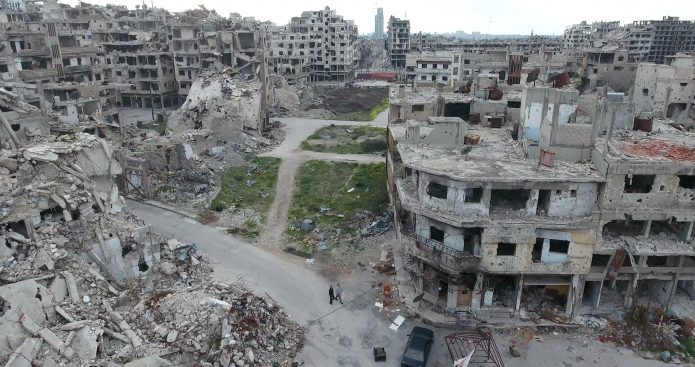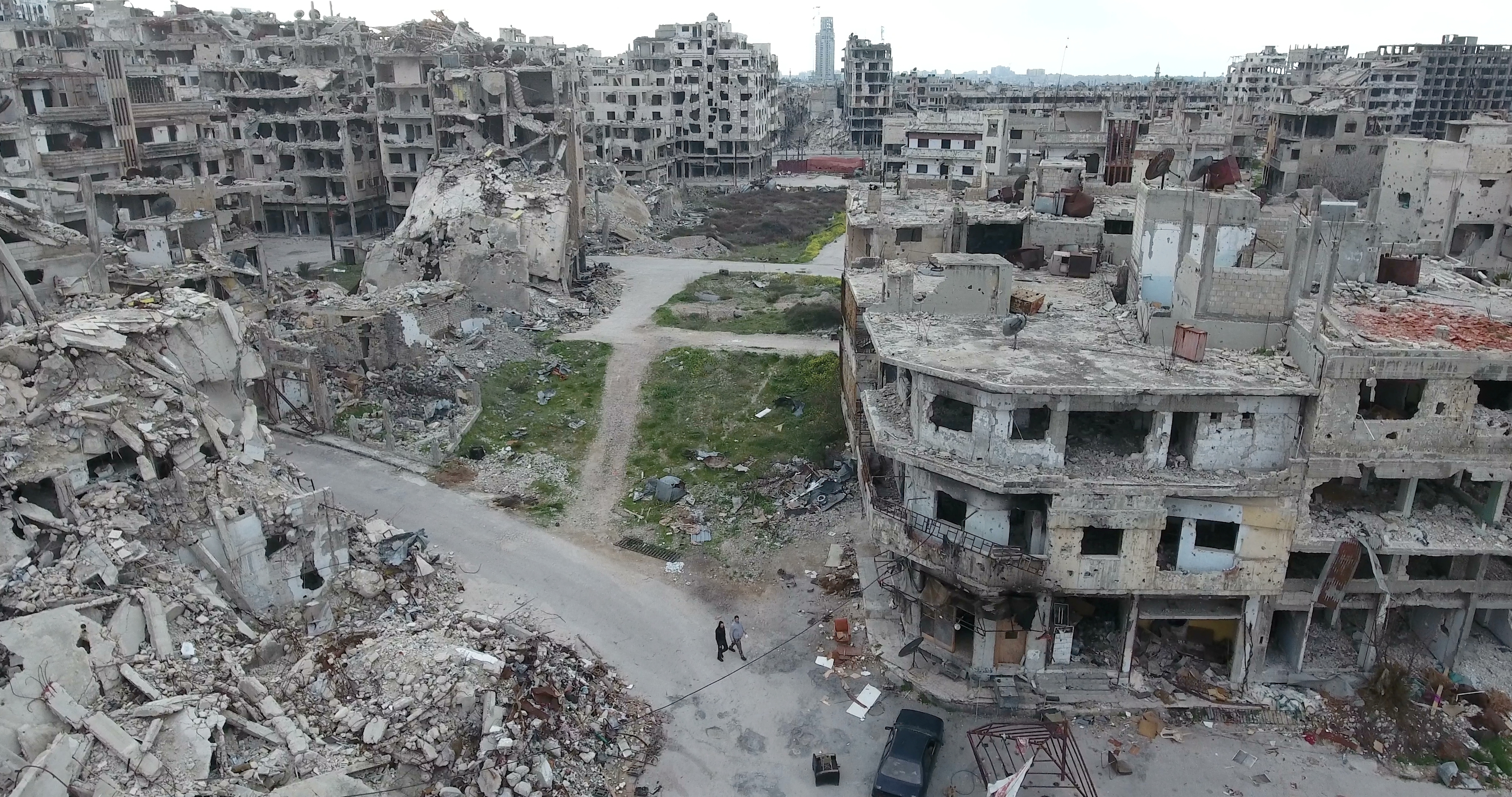
Shutterstock
UPDATE: Friday night’s US and allied air strikes against three apparent military sites in Syria were the inevitable denouement of a week’s worth of threats, taunts, bullying, and more threats. There is still a huge amount of information we don’t know: Were there casualties? Who were they? Were any of them civilians? Are the Pentagon reports of what installations were hit, what buildings destroyed, etc., accurate? That’s only the beginning—what we don’t know about what happened. The broader set of things we don’t know all involve what comes next.
The Pentagon spokeswoman and the general speaking for the Joint Chiefs of Staff said this was a “one shot” deal, and now it’s over. In fact we don’t know whether it’s over. Because the danger of all military actions—even those that might attempt and even those that succeed at being narrowly targeted, focused, and without “collateral” casualties—is that they can and often do have consequences that go far beyond intention.
At this moment, it is crucial that we not turn away, breathing a sigh of relief that what we saw last night was not a full-scale “shock and awe” attack. Last night’s air strikes were launched in violation of US law and international law. Claiming they aimed to defend another aspect of international law does not make those air strikes legal. And crucially, they did nothing to help bring the seven-year-old Syrian wars—the civil war matched by at least 10 other regional, sectarian, and global conflicts all being fought to the last Syrian—to an end. That is the real mission that needs to be accomplished. Ending the war is what will make Syrians safer. Bringing more air strikes, more violence, to that devastated country, will not. And diplomacy—powerful, engaged, determined diplomacy—and not war, is still the only way to make that happen.
Donald Trump’s campaign-era neo-isolationism is long over. He seems to want a war now, and if he can’t have one with North Korea because the pesky possibility of a diplomatic solution got in the way, Syria will do, and the recent alleged chemical-weapons attack by Bashar al-Assad’s army on the city of Douma, near Damascus, seems to have provided the pretext. But war with Syria means the potential for war with Iran, and even with nuclear-armed Russia—so this is serious. And it’s not just talk. Trump has been assembling a war cabinet and recruiting security advisers—John Bolton, Mike Pompeo, Gina Haspel—known for choosing war over diplomacy and torture over international law.
Trump has been conducting foreign and domestic policy by tweet for some time; now he’s even flip-flopping by tweet. First it was the threat that “Animal Assad” would pay the biggest price for the Douma attack. Then, after a Russian diplomat said that Moscow would shoot down any missiles heading for Syria, Trump tweeted, “Get ready Russia, because they will be coming, nice and new and ‘smart!’” He warned that a decision would come in 24–48 hours, then pulled back to threaten an attack that could be “very soon or not so soon at all!”
The shift from imminent to “let’s wait” might be driven by efforts to get France and Britain—whose leaders are champing at the bit to join Trump’s crusade but whose parliaments are appropriately wary—on board. Less likely is the possibility that the White House is actually waiting for information from chemical-weapons inspectors.
Far more significantly, all of these threats are taking place before we know what actually happened in Douma. Days after reports of a chemical-weapons attack surfaced on April 7, Defense Secretary James Mattis admitted that the Pentagon was “still assessing” the claims. They still didn’t even know what chemicals, if any, were actually used.
…
